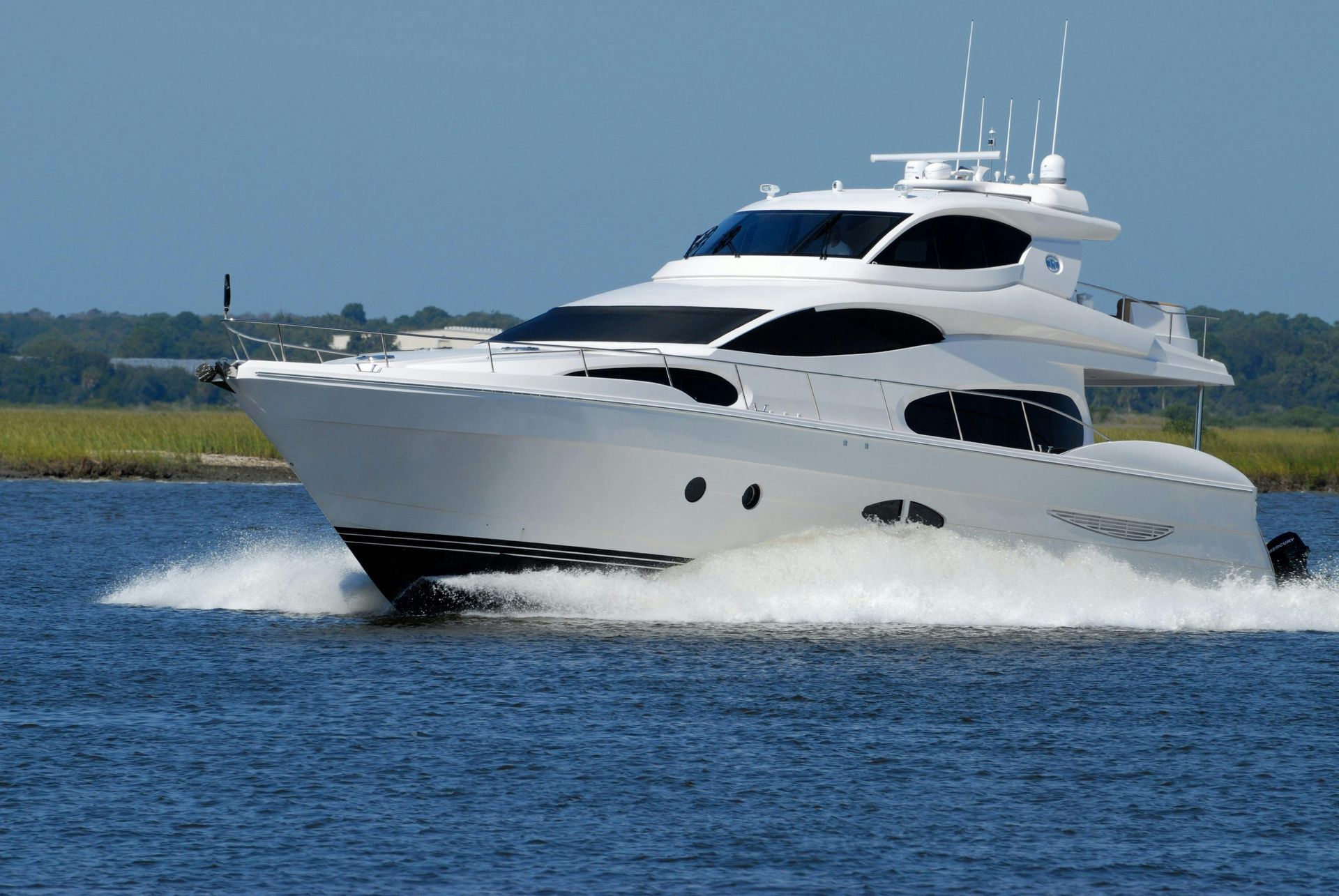
What is a yacht's resale value?
The resale value of a yacht is a crucial consideration for both buyers and sellers. Understanding what influences this value can significantly impact your investment decisions, whether you intend to sell your yacht in the future or buy with a potential resale in mind. In this article, we will explore the factors affecting yacht resale values, how to maintain that value, the selling process, market trends, and making wise purchasing decisions.
Understanding Yacht Resale Value
Yacht resale value refers to the amount a yacht can be sold for after it has been used. This value is not static; it changes based on various factors that we will discuss in detail. For potential buyers, understanding these resale values can inform better purchasing decisions, leading to investments that hold their value over time. Additionally, being aware of the market dynamics can help sellers strategize their sales approach, ensuring they maximize their return on investment.
Factors Influencing Yacht Resale Value
Several key factors influence the resale value of a yacht:
- Age and Condition: The age of the yacht is a primary determinant. Generally, newer yachts fetch higher prices. Additionally, the overall condition—both mechanical and aesthetic—plays an essential role. Regular maintenance and care can significantly extend a yacht's lifespan and appeal, making it more attractive to potential buyers.
- Brand Reputation: Certain brands or manufacturers have a reputation for quality and reliability, which can significantly affect resale values. Brands that are known for their craftsmanship often command a premium, as buyers are willing to pay more for the assurance of quality.
- Yacht Type and Size: Powerboats, sailboats, and catamarans all cater to different markets. Typically, larger boats tend to have higher resale values. However, the specific type of yacht can also dictate its desirability; for example, luxury motor yachts often appeal to a different demographic than racing sailboats.
- Market Demand: Seasonal demand can influence prices; for instance, yachts may sell for more in peak sailing seasons. Economic factors and trends in leisure spending can also sway demand, making timing an essential consideration for sellers.
- Upgrades and Customizations: Enhancements and modernizations can increase value, especially if they align with current market trends. Features such as advanced navigation systems, energy-efficient engines, and luxurious interiors can set a yacht apart in a competitive market.
The Depreciation of Yachts Over Time
All vehicles, including yachts, experience depreciation. However, yachts can depreciate at different rates based on several factors:
- The initial purchase price, as luxury items often depreciate more slowly. High-end yachts may retain their value better than more affordable models, especially if they are well-maintained.
- The frequency of use, as more extensive use could lead to faster depreciation. Yachts that are used for chartering, for example, may show signs of wear and tear more quickly than those used sparingly.
- Market fluctuations, where trends can dramatically affect values. Economic downturns can lead to a surplus of yachts on the market, driving prices down.
Understanding depreciation is vital, especially for those planning to invest in a yacht. Knowing when to sell can lead to a better return on investment. Additionally, potential buyers should be aware of the depreciation curve, as this can inform their purchasing strategy and help them identify the right time to enter the market. Engaging with yacht brokers and industry experts can provide invaluable insights into current trends and future projections, ensuring that buyers and sellers alike make informed decisions in the ever-evolving yacht market.
How to Maintain Your Yacht's Resale Value
Maintaining your yacht’s resale value requires a proactive approach that encompasses both regular care and strategic refurbishments. This section outlines critical practices to protect your investment.
Regular Maintenance and Upkeep
Regular maintenance is crucial in ensuring that a yacht remains in peak condition. This includes:
- Routine Cleaning: Keeping the yacht clean and well-kept enhances its appearance and prevents long-term damage.
- Mechanical Inspections: Regular check-ups of engines, systems, and equipment can prevent minor issues from becoming costly repairs.
- Seasonal Preparations: Preparing your yacht for off-seasons can protect it from weather-related deterioration.
Investing time in maintenance not only extends the lifespan of your yacht but also convinces potential buyers of its value. Furthermore, maintaining a detailed log of all maintenance activities can serve as a valuable selling point, providing potential buyers with assurance that the yacht has been well cared for. This documentation can include service records, parts replaced, and any upgrades made, showcasing a commitment to quality and care that discerning buyers will appreciate.
The Role of Yacht Refurbishment
Refurbishment can dramatically enhance a yacht's resale value by refreshing its appearance and functionality. Consider the following options:
- Interior Upgrades: Modernizing interiors can attract buyers. This includes updating furniture and fixtures.
- Exterior Work: Refinishing the hull, applying new paint, or replacing any worn-out features can significantly improve curb appeal.
- Technology Additions: Equipping the yacht with the latest navigation and entertainment technology adds functional value.
Though refurbishment requires significant investment, it often pays off by attracting higher bids during resale. Additionally, focusing on eco-friendly upgrades, such as solar panels or energy-efficient systems, can appeal to a growing market of environmentally conscious buyers. These enhancements not only improve the yacht’s functionality but also position it as a forward-thinking choice in a competitive market, potentially increasing its desirability and resale value even further.
The Process of Selling a Used Yacht
When the time comes to sell a used yacht, the process can be as crucial as the maintenance practices carried out during ownership. A well-structured approach ensures a smoother transaction.
Preparing Your Yacht for Sale
Preparation is key to attracting potential buyers. Steps include:
- Extensive Cleaning: Deep clean interior and exterior to enhance visual appeal.
- Addressing Repairs: Fix any noticeable flaws to prevent deterring buyers.
- Gathering Documentation: Compile maintenance records, service history, and warranties as proof of care.
Additionally, staging your yacht can significantly enhance its appeal. Consider arranging the interior to showcase its spaciousness and functionality. This might involve decluttering personal items, adding fresh linens, or even placing tasteful decor that reflects a nautical theme. Furthermore, taking high-quality photographs during the golden hour can capture the yacht in its best light, making it more enticing to potential buyers browsing online listings.
Pricing Your Yacht for the Resale Market
Pricing your yacht correctly is crucial for a successful sale. Consider these tips:
- Perform Market Research: Evaluate similar yachts in your market to understand price ranges.
- Set a Competitive Price: Take into account your yacht’s condition and the current demand and supply.
- Consult Professionals: Real estate agents or yacht brokers can assist in price evaluation.
A competently priced yacht is more likely to sell quickly, reducing holding costs. It’s also wise to factor in any unique features your yacht may have, such as upgraded navigation systems, eco-friendly engines, or custom interiors, which could justify a higher asking price. Additionally, consider the timing of your sale; listing your yacht during peak boating seasons can attract more buyers and potentially lead to a quicker sale at a favorable price.
The Impact of Market Trends on Yacht Resale Value
External trends can significantly sway yacht resale values. Understanding these trends can help both buyers and sellers make informed decisions.
The Effect of Economic Conditions
The economic climate can greatly affect consumers' spending capabilities and willingness to invest in luxury items like yachts. Factors include:
- Consumer Confidence: High confidence levels often correlate with increased luxury purchases.
- Interest Rates: Changes in interest rates can impact financing options and affordability.
- Economic Growth: Increased economic activity generally leads to a more robust yacht market.
Demand and Supply in the Yacht Market
The balance between demand and supply can significantly affect yacht prices. In a seller’s market, prices can inflate due to higher demand. Conversely, in a buyer’s market, prices may fall:
- Seasonality: Demand can spike during peak sailing seasons, affecting resale prices.
- Trends in Ownership: As new generations become interested in yachting, demand can shift.
- Location Influence: Certain locations have higher buyer interest, leading to faster sales and higher values.
Buying a Yacht with Resale Value in Mind
For potential buyers, selecting a yacht that will maintain its value can entail thoughtful planning and research. Here are essential tips.
Choosing the Right Yacht Model
Not every yacht model holds its value in the same way. Researching models that are known for longevity and quality can yield a better resale value. Factors to consider include:
- Brand Reputation: Well-known brands often have higher resale values.
- Bestselling Models: Certain models consistently perform well in the market.
The Importance of Yacht History and Documentation
When buying a yacht, examining its history and documentation is crucial. This includes:
- Maintenance Records: A well-documented history oftentimes leads buyers to trust the yacht’s condition.
- Previous Ownerships: Multiple owners can indicate potential issues, while single ownership can reflect consistent care.
Ensuring comprehensive documentation can not only help in negotiating prices but can also enhance future resale value.
In conclusion, understanding yacht resale value involves recognizing the multifaceted factors that influence it, diligently maintaining your yacht, and navigating the selling and buying processes effectively. By equipping yourself with this knowledge, you can make informed decisions that protect your investment and enhance your yachting experience.
Contact us for Yacht Rentals and Sales
Stay inspired
Be the first to get new yacht related content and updates. We won't spam you.
Contact Us
We will get back to you as soon as possible.
Please try again later.
